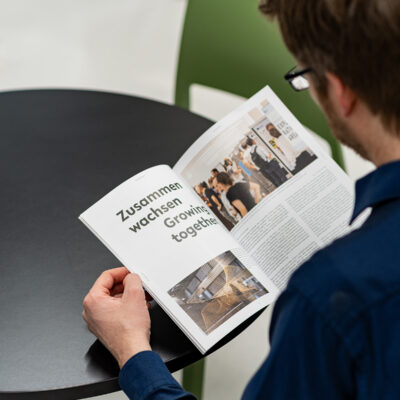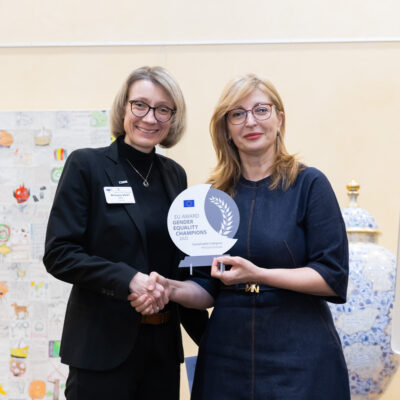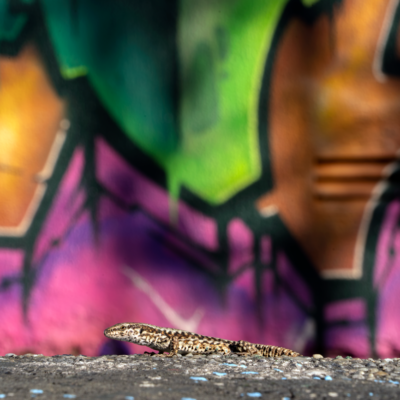What role do digital methods play in science and how do they influence various uncertainties in research and also in society? Historian Dr Silke Schwandt is exploring precisely these questions. Two complementary findings have emerged. Digital methods in science help to navigate through uncertainties and, at the same time, they may contribute to exacerbating uncertainties. As part of the interdisciplinary Center for Uncertainty Studies (CeUS) at Bielefeld University, Schwandt is researching how digital tools can reduce uncertainty in science and also what society expects from science regards dealing with general uncertainty.
Firstly, they can be used to contain uncertainty on the basis of data collection
or even to provide a way to navigate uncertainty.
And secondly, digital methods can be used in sciences
that do not yet work so much with data, to unsettle these sciences
and generate uncertainty, which then leads to new insights.
Exploring uncertainty with digital methods
I explore uncertainty, especially in my own research.
And I do so as an academic who wants to use digital methods
to deal with uncertainty productively in order to gain new insights.
But also by trying to understand how actors navigated uncertainty in medieval courts.
That is one area, so quite specific.
The second thing is that we found that there are quite a lot of people like me,
who are in some way dealing with uncertainty or exploring uncertainty in their fields of research.
My colleague Andreas Zick in conflict research, for example.
Conflicts have a lot to do with uncertainty or the uncertainty of various actors.
And with the Center for Uncertainty Studies in Bielefeld, we have tried to bring together these different areas,
different actors, actors at the university,
in order to identify new fields of research through the perspective of uncertainty.
I mean, I’m not saying:
let’s look for everyone working on English courts—that’s a much smaller group.
But if I say, I’m researching not only with English courts or about English courts,
and that I’m interested in how historical actors navigated uncertainty,
then I can engage in conflict research
if they say, yes, we’re also exploring uncertainty.
And even with the experimental physicist who says, well, in my science, uncertainty has a completely different status.
Experiments are always uncertain.
That’s completely normal.
Yes, and then we can, if you like, address this concept of uncertainty in a completely different way in the Center of Uncertainty Studies
and try to establish a new, interdisciplinary field for Bielefeld, so to speak.
In the Collaborative Research Centre, we are developing a platform called nopaque, which provides various tools
to enable digital analysis processes on text.
And in doing so, of course, we also enable the productive unsettling of knowledge.
But what we also want to reduce at this point, or what we also want to overcome,
is the uncertainty that colleagues have about interacting with digital methods in the first place.
By providing them with a tool that guides them step by step through the pre-processing stage of turning text into data and onto analysing the data,
the hope is that we can, as it were, reduce their hesitancy in engaging with digital methods
and the uncertainty we find they have in working with them.
So, when you think about what society expects from science
in terms of uncertainty, I think it’s important to bear in mind
that society actually expects science to provide explanations
and to reduce uncertainty and not to make complex situations much more incomprehensible by explaining them in complex ways.
We saw that during the Covid pandemic, and I think we’ve all been through that ourselves.
People wanted science/politics, some experts, to tell us what we should do.
And the fact that scientists in these expert circles did exactly what scientists do,
namely relativise and be as precise as possible for specific statements,
but unfortunately not always on a more generalised level,
rather unsettled society and, I believe, put the relationship
between society and science to a new test.
And that is important when we consider, where this uncertainty is found and what uncertainty society
presents to science as a problem that needs to be solved,
and at what point can science use uncertainty productively in order to arrive at precisely the kind of explanation
that can then perhaps once more lead to the feeling of a more certain answer of sorts in society?




